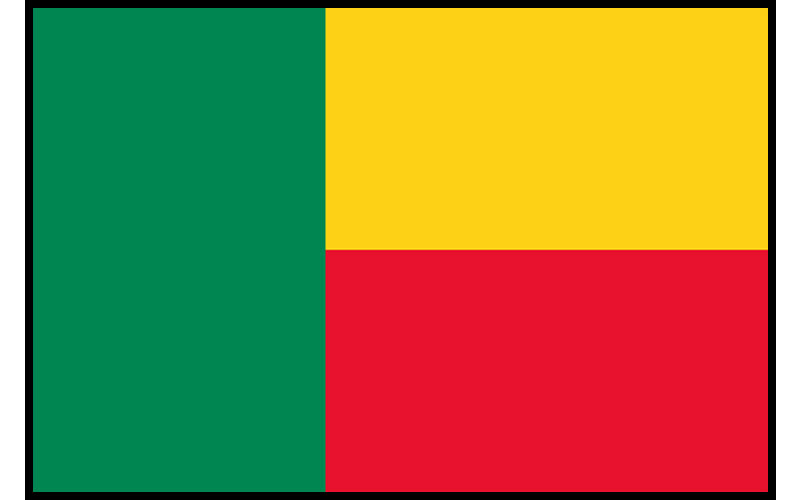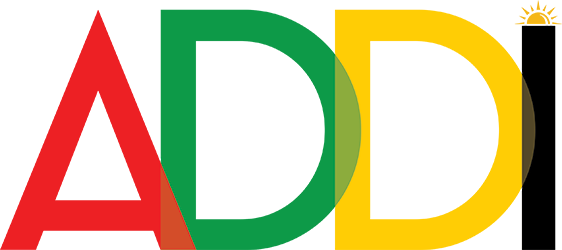
President: Yayi Boni (2006)
Prime Minister: Lionel Zinsou (2015)
Land area: 42,710 sq mi (110,619 sq km); total area: 43,483 sq mi (112,620 sq km)
Population (2014 est.): 10,160,556 (growth rate: 2.81%); birth rate: 36.51/1000; infant mortality rate: 57.09/1000; life expectancy: 61.07
Capital (2011 est.): PortoNovo (official), 314,000;
Largest city and seat of government: Cotonou 924,000
Monetary unit: CFA Franc
National name: Republique du Benin
Languages: French (official), Fon andYoruba (most common vernaculars in south), tribal languages (at least six major ones in north)
Ethnicity/race: Fon and related 39.2%, Adja and related 15.2%, Yoruba and related 12.3%, Bariba and related 9.2%, Peulh and related 7%, Ottamari and related 6.1%, YoaLokpa and related 4%, Dendi and related 2.5%, other 1.6% (includes Europeans), unspecified 2.9% (2002 census)
Religions: Catholic 27.1%, Muslim 24.4%, Vodoun 17.3%, Protestant 10.4% (Celestial 5%, Methodist 3.2%, other Protestant 2.2%), other Christian 5.3%, other 15.5% (2002 census)
National Holiday: National Day, August 1
Literacy rate: 42.4% (2010)
Economic summary: GDP/PPP (2013 est.): $16.65 billion; per capita $1,600. Real growth rate: 5%. Inflation: 2.4%. Unemployment: n.a. Arable land: 22.48%. Agriculture: cotton, corn, cassava (tapioca), yams, beans, palm oil, peanuts;livestock. Labor force: 3.662 million; Industries: textiles, food processing, construction materials, cement. Natural resources: small offshore oil deposits, limestone, marble, timber. Exports: $1.108 billion (2013 est.): cotton, cashews, shea butter, textiles, palm products, seafood. Imports: $1.835 billion (2013 est.): foodstuffs, capital goods, petroleum products. Major trading partners: India, China, U.S., France, Niger, Nigeria, Malaysia, Lebanon (2012).
Communications: Telephones: main lines in use: 156,700 (2012); mobile cellular: 8.408 million (2012). Broadcast media; state-run Office de Radiodiffusion et de Television du Benin (ORTB) operates a TV station with multiple channels giving it a wide broadcast reach; several privately owned TV stations broadcast from Cotonou; satellite TV subscription service is available; state-owned radio, under ORTB control, includes a national station supplemented by a number of regional stations; substantial number of privately owned radio broadcast stations; transmissions of a few international broadcasters are available on FM in Cotonou (2007). Internet hosts: 491 (2012). Internet users: 200,100 (2009).
Transportation: Railways: total: 438 km (2008). Highways: total: 16,000 km; paved: 1,400 km; unpaved: 14,600 km (2006.). Waterways: 150 km (on River Niger along the northern border) (2011). Ports and harbors: Cotonou. Airports: 6 (2013 est.).
Fun Facts
- The size of Tennessee.
- The country is famous the world over for carved wood masks.
- There is at least one open-air market in every town of the country
- Benin is home to Fulani herders who move their livestock over long distances in search of grass.
- The red color on its flag symbolizes courage, yellow stands for wealth and green symbolizes hope and revival.
- Benin has a high fertility rate with approximately 5 children per woman.
- Benin is named after the body of water on which it lies – the ‘Bight of Benin’.
- While being very poor, Benin is also one of the most politically stable countries in West Africa.
